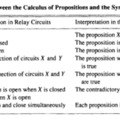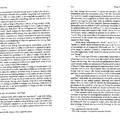Földes Károly írja a blogot
Jean Baudrillard 's game with the negation of reality
„The novel is a work of art not so much because of its inevitable resemblance with life but because of the insuperable differences that distinguish it from life.- Stevenson
And so is thought! Thought is not so much prized for its inevitable convergences with truth as it is for the insuperable divergences that separate the two.
It is not true that in order to live one has to believe in one's own existence. There is no necessity to that. No matter what, our consciousness is never the echo of our own reality, of an existence set in "real time." But rather it is its echo in "delayed time," the screen of the dispersion of the subject and of its identity - only in our sleep, our unconscious, and our death are we identical to ourselves. Consciousness, which is totally different from belief, is more spontaneously the result of a challenge to reality, the result of accepting objective illusion rather than objective reality. This challenge is more vital to our survival and to that of the human species than the belief in reality and in existence, which always refers to spiritual consolations pertaining to another world. Our world is such as it is, but that does not make it more real in any respect. "The most powerful instinct of man is to be in conflict with truth, and with the real."
The belief in truth is part of the elementary forms of religious life. It is a weakness of understanding, of common-sense. At the same time, it is the last stronghold for the supporters of morality, for the apostles of the legality of the real and the rational, according to whom the reality principle cannot be questioned. Fortunately, nobody, not even those who teach it, lives according to this principle, and for a good reason: nobody really believes in the real. Nor do they believe in the evidence of real life. This would be too sad.
But the good apostles come back and ask: how can you take away the real from those who already find it hard to live and who, just like you and me, have a right to claim the real and the rational? The same insidious objection is proclaimed in the name of the Third World: How can you take away abundance when some people are starving to death? Or perhaps: How can you take away the class struggle from all the peoples that never got to enjoy their Bourgeois revolution? Or again: How can you take away the feminist and egalitarian aspirations from all the women that have never heard of women's rights? If you don't like reality, please do not make everybody else disgusted with it! This is a question of democratic morality: Do not let Billancourt despair! You can never let people despair.
There is a profound disdain behind these charitable intentions. This disdain first lies in the fact that reality is instituted as a sort of life-saving insurance, or as a perpetual concession, as if it were the last of human rights or the first of everyday consumer products. But, above all, by acknowledging that people place their hope in reality only, and in the visible proof of their existence, by giving them a realism reminiscent of St. Sulpice, they are depicted as naive and idiotic. This disdain, let us acknowledge it, is first imposed on themselves by these defenders of realism, who reduce their own life to an accumulation of facts and proofs, of causes and effects. After all, a well-structured resentment always stems from one's own experience.
Say: I am real, this is real, the world is real, and nobody laughs. But say: this is a simulacrum, you are only a simulacrum, this war is a simulacrum, and everybody bursts out laughing. With a condescending and yellow laughter, or perhaps a convulsive one, as if it was a childish joke or an obscene invitation. Anything which belongs to the order of simulacrum is obscene or forbidden, similar to that which belongs to sex or death. However, our belief in reality and evidence is far more obscene. Truth is what should be laughed at. One may dream of a culture where everyone bursts into laughter when someone says: this is true, this is real.
All this defines the insoluble relationship between thought and the real. A certain type of thought is an accomplice of the real. It starts with the hypothesis that there is a real reference to an idea and that there is a possible "ideation" of reality. This is no doubt a comforting perspective, one which is based on meaning and deciphering. This is also a polarity, similar to that used by ready-made dialectical and philosophical solutions. The other thought, on the contrary, is ex-centric from the real. It is an "ex-centering" of the real world and, consequently, it is alien to a dialectic which always plays on adversarial poles. It is even alien to critical thought which always refers to an ideal of the real. To some extent, this thought is not even a denial of the concept of reality. It is an illusion, that is to say a "game" played with desire (which this thought puts "into play"), just like metaphor is a "game" played with truth. This radical thought comes neither from a philosophical doubt nor from a utopian transference (which always supposes an ideal transformation of the real). Nor does it stem from an ideal transcendence. It is the "putting into play" of this world, the material and immanent illusion of this so-called "real" world - it is a non-critical, non-dialectical thought. So, this thought appears to be coming from somewhere else. In any case, there is an incompatibility between thought and the real. Between thought and the real, there is no necessary or natural transition. Not an "alternation,"not an alternative either: only an "alterity" keeps them under pressure8. Only fracture, distance and alienation safeguard the singularity of this thought, the singularity of being a singular event, similar in a sense to the singularity of the world through which it is made into an event.
Things probably did not always happen this way. One may dream of a happy conjunction of idea and reality, in the shadow of the Enlightenment and of modernity, in the heroic ages of critical thought. But that thought, which operated against a form of illusion - superstitious, religious, or ideological - is substantially over. And even if that thought had survived its catastrophic secularization in all the political systems of the 20th century, the ideal and almost necessary relationship between concept and reality would in any case have been destroyed today. That thought disappeared under the pressure of a gigantic simulation, a technical and mental one, under the pressure of a precession of models to the benefit of an autonomy of the virtual, from now on liberated from the real, and of a simultaneous autonomy of the real that today functions for and by itself - motu propio - in a delirious perspective, infinitely self-referential. Expelled, so to speak, from its own frame, from its own principle, pushed toward its extraneity, the real has become an extreme phenomenon. So, we no longer can think of it as real. But we can think of it as "ex-orbitated," as if it was seen from another world - as an illusion then...”
(author's notes are omitted.)
Excerpt from a translation of Jean Baudrillard's La Pensee Radicale, published in the fall of 1994 in French by Sens & Tonka, eds., Collection Morsure, Paris, 1994. translated by
Francois Debrix of Purdue University.



